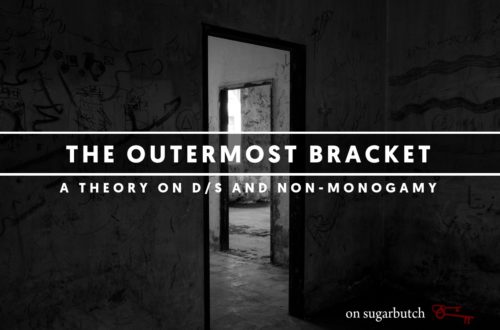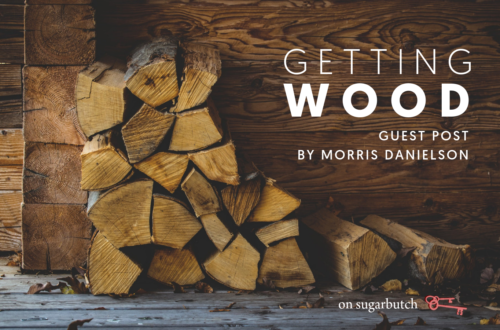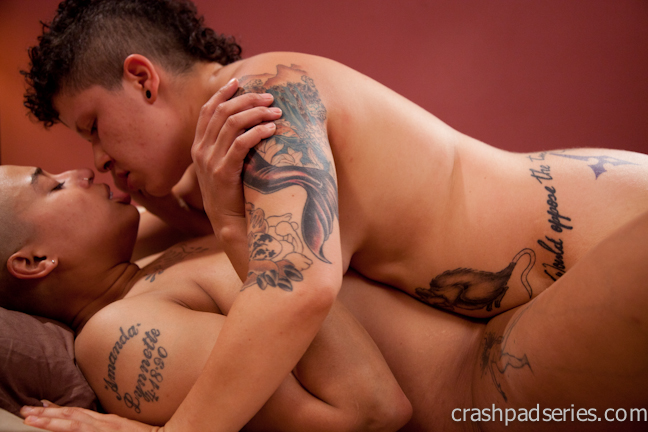Molly Malone, www.naughtymollymalone.com & naughty_molly
1. What insight about open relationships do you wish you had when you started?
In the two years that I have had open relationships, my greatest insight has been around *yawn* boundaries. What they are, how they work, what they look like, feel like, what purpose they serve, and so on.
When I first observed open relationships, and started reading up on polyamory, I found that this word ‘boundaries’ was bandied about, and given a kind of importance, that looking back, I just didn’t understand. If I’m honest, I never really got it. Once I began to embark on opening up my own relationship, I would talk about my boundaries and other people’s boundaries, as if I had significant understanding of what that meant. I didn’t have a clue.
I truly wish I did. I wish I hadn’t assumed that I should know. I thought they were somehow supposed to just protect me, and other people, like a shield, just by saying they were there, and promising to respect other people’s. I kind of knew I probably didn’t have that quite right. In reality, I must’ve known that there are no such words in our language that have a special magic ability to protect people, like a spell. But I was too embarrassed to ask, and for a long time, being ignorant didn’t have any adverse effects, so I didn’t think it could be that important. So I never really questioned it, until, of course, everything was in a big messy tangled pile and I thought ‘Oh dear, how did I get here?’
I tried so hard to be the fixer. I felt a massive weight of responsibility for a sticky situation. I denied the people I cared about the responsibility to deal with their stuff by intentionally taking it on. And I did this in my home. My home was the base for a polymess. That was when I had a bolt out of the blue, when my very first boundary came to me, and I knew, that whatever was happening, and however sad I was for all of us involved, it was no longer going to be worked out in my home. That I needed my own safe space to escape to when it all got too much. That it wasn’t my responsibility to create a space for us to all work this out, and that it was ok to stop it. That very moment, I clearly and calmly expressed that boundary, and who knew, from that point on, we didn’t use my home any more for our meetings/arguments/counselling etc.
Since then, I have discovered a few boundaries’, and managed to employ them with varying degrees of success. It’s all a bit of a learning minefield, and you just don’t know about the lesson until it blows up under foot. It’s still a word I have to remind myself the meaning of. And when I discover a new one, or spend time thinking about what other boundaries I have, I often wonder if this thing I have invented really exists, until one is crossed, and I feel like my land has been trespassed. Yup, they really exist. I now know what they are (although they metastasise often), what they feel like when they are working, and when they’re not.
What has been the hardest thing about opening your relationship, and how have you overcome that?
I feel like I haven’t had the ‘proper’ test yet; the person who I was with before I discovered polyamory, I am still with now. We are engaged to be married. This man and I began our relationship under the presumed and customary norms and traditions – one of those of course being “I will not, to the best of my ability, fuck anyone else, or fall in love with anyone else, whilst we are together”. And although we both were already questioning this norm when we met each other, we had not yet gone the whole hog and decided to open up our relationship. That came a year later.
Since then, although there has been a healthy dose of sex and play outside of the relationship, only I have formed a loving, meaningful connection with someone else (and the amazing new-love sex that comes with it). He is yet to fall in love with someone else, and I am yet to know if that will be hard for me or not.
That’s not to say things haven’t been hard.
For me, there have been two areas of difficulty. The first has been negotiating the new relationship. In this instance, the person I wanted a relationship with was in a relationship with my friend, formed under the same conditions as my primary relationship – with all the presumed wisdom of monogamy. The new relationship was formed slowly, over a twelve month period, and was done, for want of a better phrase, by the book. As our new relationship blossomed, their pre-existing relationship crumbled. Their relationship has since ended.
Traversing the many challenges that brought was exhausting and most definitely hard. Initially I tried to fix everything, to take responsibility for their relationship and the problems they were facing as a couple. All the while taking on guilt and shame. It was, and still sometimes is, very difficult to learn how to distinguish between what was my responsibility, and what wasn’t. Being able and willing to hold my friend, in her pain, whilst not taking on guilt or resentment, was exceptionally hard.
Subsequently, having the courage of my convictions can feel hard. I sometimes feel like I have to defend myself, my choices and my actions. When this situation is viewed from a normative context, it looks like this: You fancied your mates girlfriend, they broke up, and you started going out with your mate’s bird… some friend you are! So I think what is hard about this is not having a group of supportive peers. Choosing an ‘alternative’ relationship paradigm sometimes feels isolating because of that. It can be hard to ask for support from friends and family, when first you have to have that conversation. There is fear and vulnerability mixed up in there somewhere – that I won’t be heard, that my feelings will be discounted or invalidated by my peers because I’m being ‘greedy’ choosing more than one lover, that the inevitable question will be “But what about your friend? And what about your fiancé? Aren’t you hurting them?” And I will have to answer “Yes, sometimes they feel hurt, or sad, or jealous. But I’m ok with that, and their pain is not my responsibility, and we talk about this stuff, we have procedures in place to help us through those bits” and it all just sounds like lefty liberalism that is doomed for failure. It’ll be met with the same suspicious eye-roll that my mother gave me when I was a rebellious youth, with that “don’t come crying to me when it all blows up in your face” tone of voice.
A different challenge has been realising, for the first time, that falling in love when you are polyamorous, feels just the same as falling in love when you are monogamous. For some reason I was under the impression that with all these new fancy words, and emotional maturity, and books, that if I fell in love with someone else, I would be somehow immune to all the stupid, crazy, indulgent, ecstatic loonyness that falling in love traditionally inspires.
How foolish of me! It has been quite difficult to come to terms with the fact that I have responsibility to my other relationship. And as great and exciting as new love energy is, and as positive as its effects can be on pre-existing relationships, it is not an excuse, or get out card, for suddenly dropping all your commitments, to your relationship, or anything else for that matter (job, exercise-class, pet, house) and spending every waking minute talking to/fucking/staring at your new love. That’s been hard. We have overcome that by implementing quite a structured framework for seeing each other. We see each other once a week and we see each other somewhere mutual (not in my home, not in hers).
I also spent some time with my fiancé creating a Reassurance List, which is a list of things which I can do to reassure him when he needs it, and vice versa (like taking a bath together, doing some gardening, solving a household DIY problem together etc).
3. What has been the best thing about your open relationship?
Back even before we opened our relationship to others, both my fiancé and I felt that one person could not possibly be all things, to one person, at all times. For me, one of the best things about being able to form meaningful connections with more than one person is just that! I get to explore connections with people without the limit or restriction or fear of developing ‘feelings’ for them. We are multifaceted creatures, different people bring out different sides to our personalities, and we have diverse and changeable requirements. It feels logical, like it makes sense, it enables me to explore the dimensions of myself in a way that I couldn’t with one closed relationship. I remember, way back in adolescence, peers debating over which stage of a relationship was better; the crazy new-love with all its uncertainty and excitement, or the comforting long-haul with it’s predictability and reassurance? I remember thinking, shit! Do I have to choose? I like them both! And the answer was no, I don’t have to choose.
I would also say that the extraordinary level of self-development, of turning yourself inside out, examining the contents, and putting it all back together, is an invaluable process of embarking on non-monogamy. But also, the sex. I have always been attracted to boys and girls. I like having heteronormative sex, with a boy, with his penis in my vagina, but I also like having girlie lesbian sex, I also enjoy genderless sex, and gender reversed sex, I like submissive sex, and dominant sex, and switchy sex. I like having sex with my cock, I like sex with men who identify as gay, I like sex with myself, I like group sex. My fiancé is a heterosexual, cis gendered male. Thus he cannot fulfil all my sexual wants and needs. Although it’s a bit of a carnal and sexually obsessed answer, that’s probably the best thing about our open relationship. Not having to choose or value one type of sex over another and stick with it for life.



